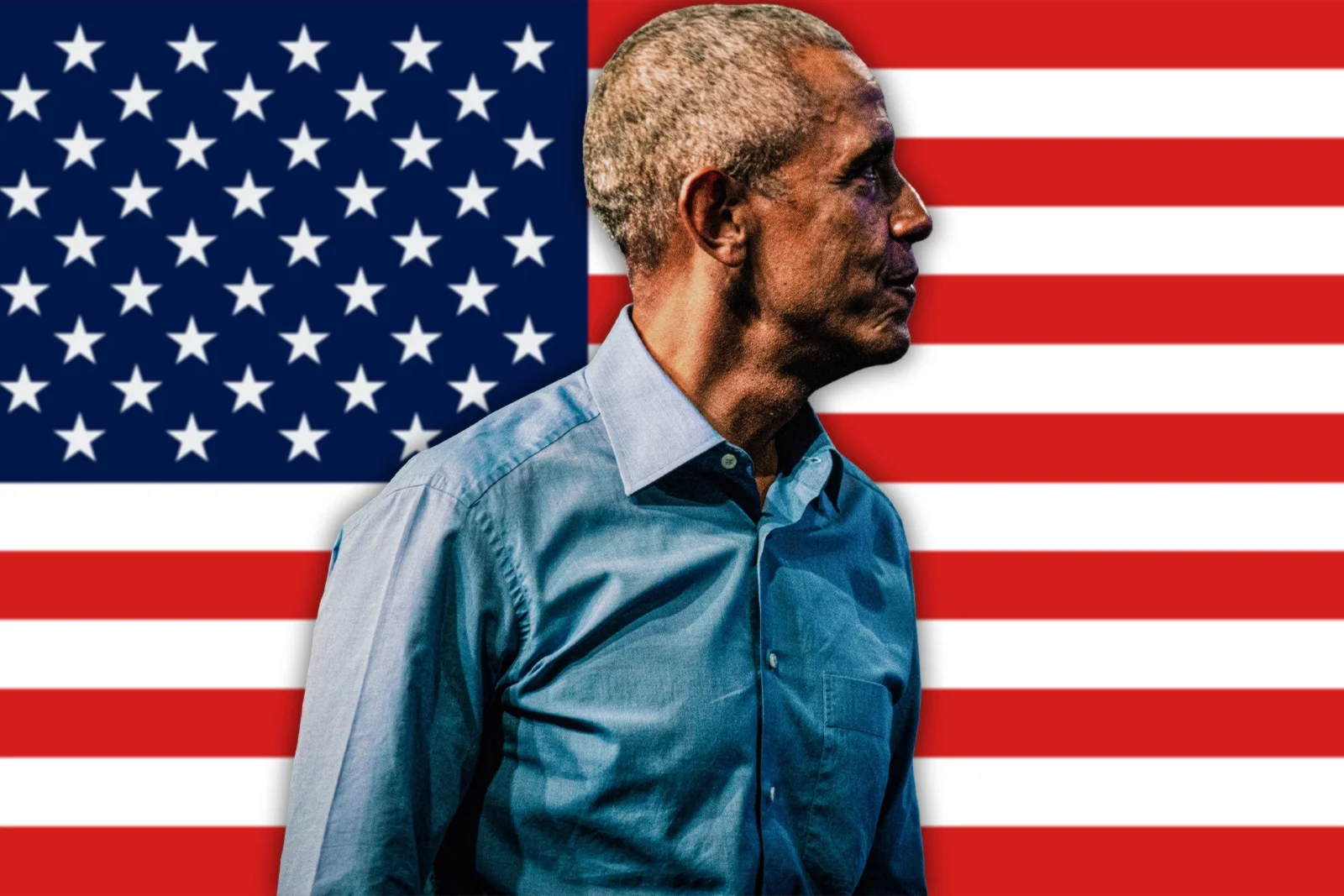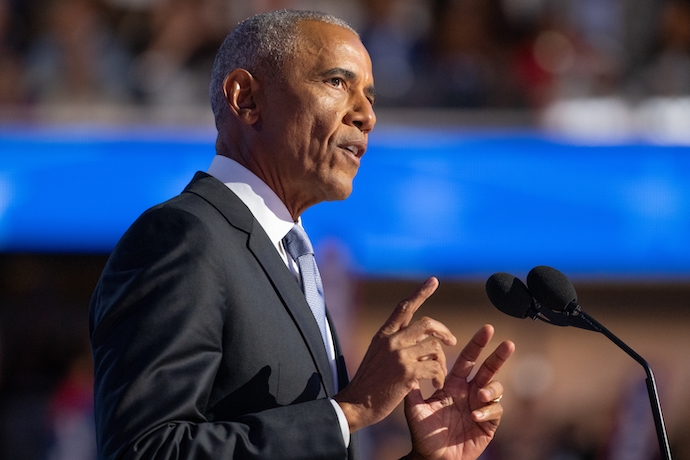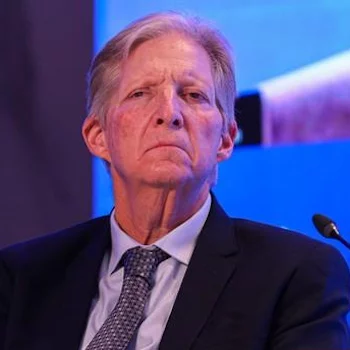
Leaving the Obama Legacy Behind
As America and the world ready itself for Trump 2.0, the incoming Trump administration must prepare for a foreign policy inbox more challenging than any new administration has been greeted with since perhaps the legacy left by President Jimmy Carter for the incoming Reagan administration.
Russia’s full-scale invasion of Ukraine, Iran’s proxy-driven attacks on Israel from Gaza, Yemen, and Lebanon, and Beijing’s aggressive challenges to the U.S.-led order in East Asia, the South China Sea, and the Taiwan Strait all underscore a stark truth: the collapse of U.S. deterrence.
Deterrence depends on an adversary’s credible belief that the United States possesses both the will and the capacity to prevent or punish hostile actions. Today, that belief is conspicuously absent. How did we arrive at this point, where adversaries brazenly disregard American responses and pursue actions that undermine both U.S. interests and those of its allies?
President Biden’s policies—most glaringly, the chaotic withdrawal from Afghanistan—have certainly played a role. Yet, the deeply destabilized global landscape we now face, marked by the erosion of U.S. deterrence and the ascendancy of Moscow, Tehran, Pyongyang, and Beijing, is largely a consequence of the Obama administration’s legacy. For 12 of the past 16 years, the White House has been shaped by these two presidencies, leaving a trail of missed opportunities and strategic missteps.

In Iran, the Obama administration tried to persuade Gulf states confronting Tehran’s pursuit of regional hegemony that America could not be fully relied upon as a security guarantor. Instead, they were urged to accommodate and share regional leadership. By pursuing the JCPOA—with its ambiguous deadlines and lax enforcement—Washington resembled a gated community addressing its own security concerns while ignoring the broader threats posed to Israel, Saudi Arabia, and the Gulf Emirates by Iran’s proxies and missile program. The concessions made by the Obama administration in pursuit of a deal with Tehran ultimately handed the regime a financial windfall, which it used to fuel the malign activities of its proxies and accelerate its missile development.
In Syria, President Obama failed to act decisively on his “red line” against Assad’s use of chemical weapons. His declaration that “Assad must go” was made without a coherent plan to enforce it, severely undermining U.S. credibility. This failure not only contributed to the deaths of over 400,000 Syrians but also triggered a migration crisis that strained European Union unity. It further opened the door for Vladimir Putin to reassert Russian influence in the Middle East—levels of dominance not seen since Henry Kissinger’s era, when U.S. diplomacy outpaced Soviet arms.
It is with Russia that the Obama administration’s policies have left the costliest legacy and dealt the greatest blow to U.S. deterrence. The naive “reset” with Moscow, initiated just months after Russia’s invasion of Georgia, and the weak, ineffective response to the Kremlin’s 2014 annexation of Crimea, reveal an administration that either failed to grasp the threat posed by Moscow or hesitated to confront it. This reluctance was most evident in the administration’s decision to resist calls to arm Ukraine, a move that could have increased the costs of Putin’s aggression. Instead, Obama’s Pentagon concluded that arming Ukrainians would only escalate violence. The tragic short-sightedness of this decision is clear today, as Europe endures the third year of its largest conflict since the Second World War.
This should come as no surprise. During the 2012 presidential debate, Obama mocked Senator Mitt Romney’s assertion that Russia posed a significant geopolitical challenge, quipping that the 1980s had called to reclaim its foreign policy. That remark underscored the vast gulf between Obama’s cautious approach and the assertive “peace through strength” doctrine that defined Reagan-era strategy.
Obama cannot be solely blamed for misjudging China by adhering to a policy of engagement. However, the Obama White House persisted with this approach long after it became evident that President Xi Jinping had abandoned Deng Xiaoping’s strategy of cautious development in favor of openly challenging the Western-led order in pursuit of his vision for China’s “great rejuvenation.”
Xi faced no deterrence as he constructed and militarized installations on the disputed Spratly Islands in the South China Sea—this, despite personally assuring Obama while standing next to him, that he would not do so. Xi understood that he could act without consequence, as Obama continued to advocate for rooting for China’s rise to a role in shared global leadership.
On the Korean Peninsula, Obama’s approach, labeled as “strategic patience,” effectively ceded negotiations to Beijing, inadvertently strengthening China’s influence at Seoul’s expense. His oft-quoted and overly simplistic maxim, “Don’t do stupid (stuff),” became emblematic of a White House mired in deliberation, led by a President hesitant to take decisive action.
Following the path laid out for him, President Biden has shown a greater fear of escalation than a commitment to deterrence. While he has declared that the U.S. would defend Taiwan, such statements have often been walked back by his own administration. Rather than forcing the Kremlin to speculate about Washington’s potential actions, Biden has instead outlined what his administration would not do.
This reactive approach has ceded the initiative, as seen in his hesitation to act decisively on Ukraine—waiting to assess the extent of Russia’s invasion before formulating a response. Compounding these issues, Biden has overseen a real-terms reduction in defense spending at a time when growing great-power rivalries demand not just a larger defense budget but a more strategically focused one.
With the incoming administration of President Trump, enhancing deterrence requires eroding our adversaries’ confidence in American inaction and compelling them to anticipate preventative or responsive measures from the U.S. Only then can the Obama legacy finally be left behind.
